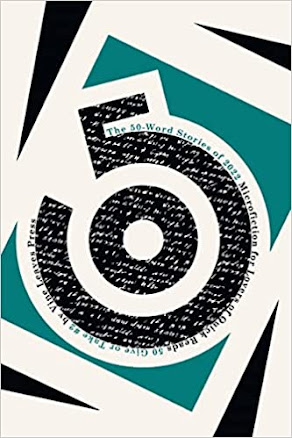Roy, not his real name because he was in the CIA, and they are funny about that sort of thing, oversaw the equipment spies used in their tasks as they prevented poor Latin American countries from becoming communist threats to the United States. If this were a James Bond story, Roy would be Q.
In the Cold War, the CIA prevented poor Latin American countries from becoming communist threats to the United States from their command center in the Canal Zone, an American imperial enclave in the middle of the tropical republic through which ran the Panama Canal. The residents of the Canal Zone, called Zonians, were either American civilians hired to support the canal or as military to defend it from all enemies.
Tall, lean with a narrow face, Roy, a World War II veteran, took his job at the agency seriously. His jet-black hair had small patches of grey around the temple that his wife told him came from overwork. But like most in the spy business, Roy believed what he did every day protected his country from the red menace. That he could share, none of what he did with his wife sometimes made her skeptical.
In December, the wind patterns in Panama shift, bringing on the dry season. Rain, usually prevalent at other times, becomes scarce, and reservoir water levels run low. While their North American counterparts cleared snow out of their driveways, Zonians turned on their sprinklers because the need for the green front lawns of suburban homes came with the Americans to the tropics. Thirsty jungle animals such as armadillos, sloths, and venomous snakes frequently invaded these watered lawns.
Like the other Zonians, Roy and his family celebrated Christmas in American fashion. He picked up his family's Christmas Tree at the Army Post Exchange, which got the Christmas trees from the Pacific Northwest. Months in the hole of a ship made these trees brown fire hazards, and like most Zonians, Roy's family applied copious amounts of tinsel in the decorating.
Seven-year-old Patty, her real name since she was not in the CIA, faced her first Christmas on the isthmus with difficulty. Her family members were new Zonians, relocated when her father, an engineer, accepted employment with the Panama Canal Company.
Patty's bright blue eyes, framed with a gentle spray of freckles, displayed the discomfort of her new circumstances. For this little girl, Christmases included cold weather, hot chocolate, and green Christmas trees. But, in the Canal Zone, everything appeared out of sync: Bing Crosby singing " White Christmas" on the radio in the searing tropical heat and kids sliding down hills on palm sheaths and flattened cardboard boxes instead of snow sleds.
But worse, her new home had no fireplace, no chimney for Santa Claus to come down. Her mother's explanation that Santa could make himself magically appear in a house and then disappear when he completed his tasks sounded lame. Patty doubted that the jolly gent in his heavy red coat and his reindeer from colder climes would come near this part of the world. So, for the first time in her young life, Patty had no excitement for Christmas.
On the morning of Christmas Eve, she stepped out of her house and discovered a bright yellow viper slithering across her front lawn. She let out a scream that alerted one of the gardeners nearby.
" Bocaracá!" shouted the small brown man, and he grabbed his machete. Then, with one quick movement, he brought the blade down on the snake separating its head from its body. Patty watched in horror as the serpent's headless body thrashed about, oozing blood from its open wound. The gardener picked up the two pieces of the ophidian and tossed them into the tall grass beside Patty's house. The little girl went back inside and lay on her bed until she stopped shaking. Some Christmas!
Several miles from Patty's house, Roy sitting at his desk going over paperwork, discovered that a warehouse used to store CIA equipment had gone without an inventory check for two years. This oversite needed addressing immediately. So, Roy took his list of items to be counted and hurried to the neglected storehouse. There the CIA quartermaster opened boxes and made little checkmarks next to the entries on his list. Then, just when he convinced himself that his crisis would quietly pass, he opened a box that presented a problem.
Inside this box sat a weather balloon, the kind used by the Air Force to measure such things as atmospheric pressure and wind speed. It did not appear to be on the inventory list. Hastily Roy returned to his office and searched through his files to see if the balloon belonged somewhere else, but it did not show on any list. He would have to report this discrepancy to his superiors, which meant an inquiry involving a mountain of forms and possibly a visit from those in Washington DC he had rather not face.
Then an impish plan came into Roy's head, and that night, he told his wife he had things at work that demanded his urgent attention. She protested, reminding him that it was Christmas Eve and that he had responsibilities at home. He, in turn, reminded her that the communists never rest in their push for global hegemony, not even at Christmas. Roy returned to the warehouse, loaded the weather balloon into his station wagon, and drove to an open field where youngsters practiced baseball skills.
The CIA quartermaster dragged the weather balloon to the field's center and read the instructions on the side using a flashlight. When he activated the device to fill the balloon, its size astonished him. He thought that it must be at least 20 feet high and, with delight, released the balloon into the warm night air.
As he watched the balloon ascend, Roy congratulated himself on finding a creative solution to making the pesky inventory problem disappear. He expected it would float quietly away. As he returned home to wrap presents and assemble toys, the dry season winds pushed the balloon toward the Panama Canal.
For little Patty, Christmas Eve continued to be incongruous. Her parents, interested in absorbing the Latin culture that surrounded them, took their little girl with them to visit the home of a Panamanian family they had befriended. No decorated Christmas tree stood in the house, but a large nativity scene dominated the living room. The family members spoke very little English but were sweet to her and taught Patty how to say Feliz Navidad.
When this Zonian family returned home, Patty's father turned on the black and white television to hear the evening news. A story about an unidentified object flying over the Panama Canal dominated. The Air Force had scrambled jets to find the unknown entity and shoot it down, but it had disappeared.
Talking heads on the television speculated that the Russians had a new secret weapon, launched probably from Fidel Castro's Cuba, with designs to gather information on the canal as a prelude to an attack. The Secretary of State had been alerted and sent a strongly worded communique to his Soviet counterpart, who denied any knowledge about a secret weapon and accused the Americans of making it all up. Neither side trusted the other in the Cold War.
As Patty came into the room to kiss her father good night, she saw a look of concern on his face. The little girl's face lit up when he told her about the mysterious object that flew over the canal, and her blue eyes sparkled.
"Oh, daddy," she said in a voice full of excitement. "That's nothing to worry about. It's Santa! He is coming here after all!"
And with her faith restored in Christmas, little Patty scampered off to bed.
In another Zonian household, the CIA quartermaster wrapped bright red paper around a box containing a GI Joe action figure for his son while listening, with some apprehension, to the same news.
When he heard that the Air Force had failed to locate the mysterious flying item, he sighed with relief and poured more scotch into his eggnog.
"Why are you smiling?" his wife asked.
Roy looked at his wife with sympathy.
"I'm sorry, honey," he replied. "It's classified."




